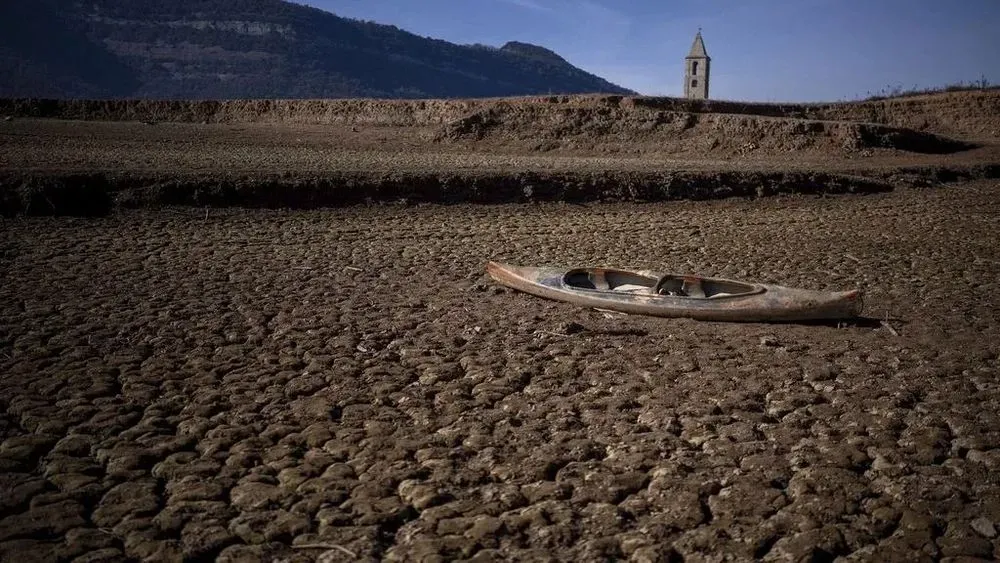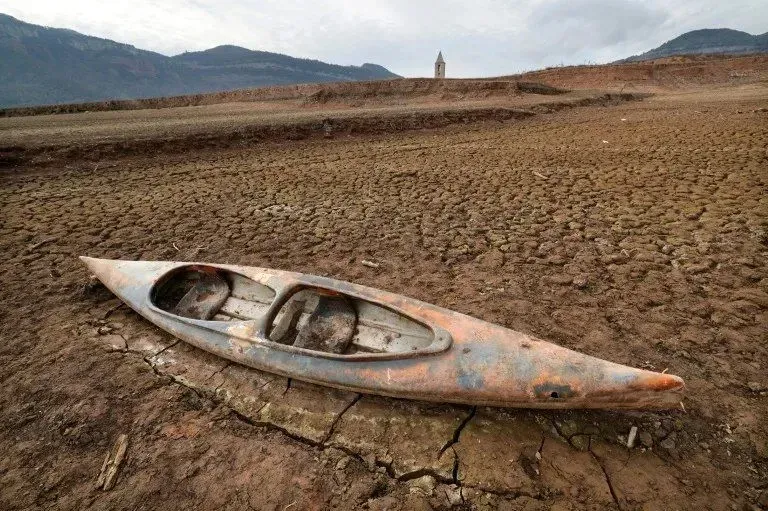Catalonia cuts water use by 80% in agriculture and 5% in homes due to record drought
Kyiv • UNN
Due to a record-breaking drought that has caused water levels in reservoirs to fall below 16% of capacity, Catalonia has declared a state of emergency in Barcelona and surrounding areas, requiring residents to reduce water use by 5% and farmers by 80%.

The Spanish region of Catalonia on Thursday declared a drought emergency in Barcelona and the surrounding area, which will now face stricter water restrictions after three years without significant rain. This is written by the Associated Press and transmitted by UNN.
Catalonia is suffering from the worst drought in the last century. We have never faced such a long and intense drought since we started recording rainfall.
Details
The head of the regional government of Catalonia, Pere Aragones, announced the restrictions after water levels in the Mediterranean region's reservoirs dropped below 16 percent of their full capacity. So now the local authorities want residents to reduce water consumption by 5% and farmers by up to 80%.
As part of the announced water conservation measures, residents of the eastern Spanish region of Catalonia will be banned from washing cars and filling empty swimming pools unless it is recycled water.
In addition, according to government regulations, public gardens can only be irrigated with groundwater.
Hotels are already preparing to use seawater in their swimming pools and are adapting toilets to use less water for flushing.
Farms and industry will face larger cuts.
The emergency declaration aims to cut the amount of water used for crop irrigation by 80 percent, twice as severe as the 40 percent cut imposed in November.
Industry should reduce water use by 25 percent, not 15 percent.
It is noted that water restrictions will affect residents of about 200 villages, towns and cities, including Barcelona. This is approximately six million people in Catalonia.

"Catastrophic situation"
If the situation does not improve after the restrictions, water consumption in Catalonia will be reduced to 200 liters from the current 210 liters per person per day. If the drought continues to worsen, the limit will be reduced to 180 liters, and then to 160 liters per person.
The local authorities also warned that if the drought continues, they will be forced to impose even stricter restrictions. Showers in gyms will be closed, and watering in public parks will be banned completely.

Context
A 2022 study found that the Iberian Peninsula is the driest it has been in 1,200 years, prompting Catalan officials to consider shipping water to Barcelona by ship if it dries up. This measure was taken in 2008, when the level of reservoirs was close to 20% and less desalination. plants were operating.
The record-breaking drought in the region is caused by the fact that weather forecasters have not observed significant rainfall in Catalonia for the past three years.
Local media report that the level of rainwater in some reservoirs in Catalonia, whose capital Barcelona is Spain's second largest city, has dropped so much that old structures such as bridges and a church bell tower have come to the surface.
Experts note that human-induced climate change is increasing the intensity and frequency of extreme weather events, such as heat waves, droughts, and forest fires.
Catalonia has built desalination plants and taken other measures, but experts say it is crucial to improve the use of both wastewater and groundwater.
Optional
The southern region of Andalusia is also struggling with a severe drought, with regional authorities warning that water restrictions will be needed in cities such as Seville and Málaga in the summer if the rains continue.
We need 30 days of rain in a row.
Both regions, which are two of Spain's most densely populated regions, are preparing to import fresh water by boat if necessary, an expensive option that officials admit does not compensate for the lack of rain.